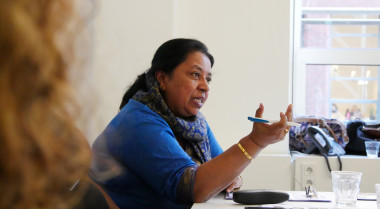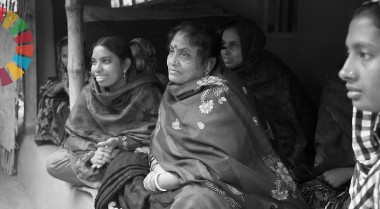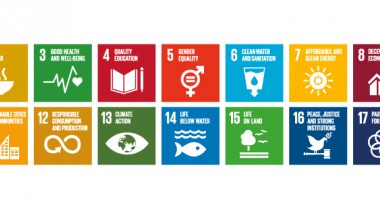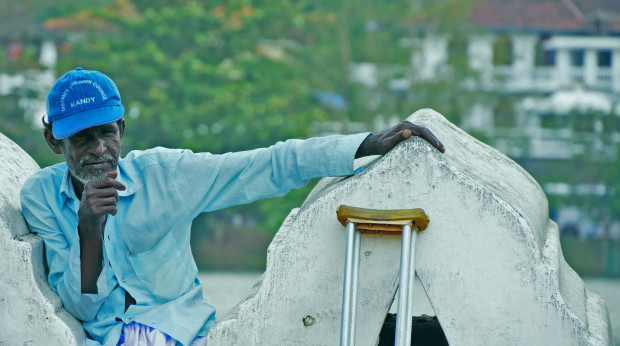Interview on SDG 16+: Locally Rooted and Globally Connected
The 2019 16+ Forum Annual Showcase in Dili, Timor-Leste, provided an excellent opportunity for GPPAC to interview one of its members, long-time feminist peacebuilder, Visaka Dharmadasa, about localising SDG16+. Motivated by her firsthand experience of the disruption conflict can cause, Visaka founded the “Association of War Affected Women and Parents of Servicemen Missing in Action”. Having lost her second son, whilst he was carrying out his role as a Sri Lankan military officer, made her extremely passionate about this cause. Visaka now dedicates herself to the promotion of peaceful, just and inclusive societies. She empowers communities by working closely with the grassroots while at the same time making connections to global policies such as SDGs. Visaka is one of the many dedicated women peacebuilders, striving to achieve the successful implementation of SDG16+ so that the world will be a better place for all of us to live in.
What is your organisation doing in your country to foster the implementation of SDG16+ and to support the voices of local people?
My organisation works closely with women as well as men by raising awareness about the importance of strengthening democratic institutions and good governance. Peace being at the heart of this work, we use workshops and promote advocacy, as people are able to demand and secure their democratic rights through advocacy.
Why is localisation so important for the SDG agenda?
Whatever decisions are taken at the United Nations Headquarters, ultimately they have to be implemented at the local level. They should resonate with the needs of the people. Full implementation of the SDGs has to be at the local level. Each member state has to take responsibility. And this can only be done through meaningful partnerships with civil society. SDGs work has to be locally rooted and globally connected.
People are empowered when they know that the issues they face on a daily basis are being discussed at the global level. Not only does this empower individuals, but it also pushes the authorities to achieve success.
Do you have any concrete examples of what ‘localizing SDGs’ looks like?
During one of our workshops, we asked some men and women from the plantation sector about the issues and problems they face. Many of these men and women were brought to Sri Lanka from South-India and have been deprived of several things. After asking these questions, we listed the Sustainable Development Goals one by one. To do this, we used small SDG books translated into our languages and we discussed every single pillar of the goals. They immediately felt connected to the goals. I was amazed to see how people feel so empowered when they know that they have the SDGs. People could finally see how the SDGs are connected to their realities.
How has GPPAC supported your work?
GPPAC has given me such enormous opportunities. It gave me the opportunity to go to Rome, to the Peaceful, Just and Inclusive Societies Conference in May 2019, and now to fly to Dili in Timor-Leste for the SDG16+ Forum Annual Showcase as one of GPPAC’s representatives. Such events give me the opportunity to connect with many people who are really knowledgeable.
I believe that GPPAC is one of the organizations in the world who has truly reached out to people at the grassroots level to exploit their full potential. And this is exactly what I always say, as GPPAC we need to exploit the full potential of people in order to work collectively for prevention of armed conflict.
To do this, we need more outreach and more regional and local work, which has to be locally rooted but globally connected.
So how can we improve that work? How can we make it better and stronger?
This work can be improved by helping people like us, by providing funds and supporting our work, our workshops, our advocacy. Exactly in the way GPPAC has done in Ghana and Cameroon; supporting local implementation of SDG16 and publishing the Cameroon and Ghana reports and connecting them to global processes.
In other words, we need to keep supporting local initiatives because the real work happens at the local level.



